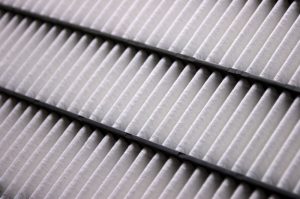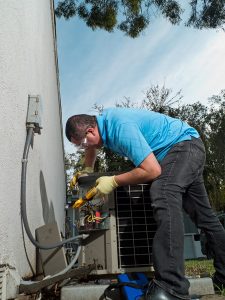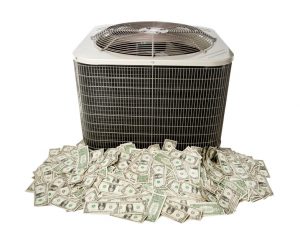Power outages are a fact of life, especially in Florida with the ever-present threat of tropical storms and hurricanes. So when your power does inevitably go out, make sure you’ve taking the proper precautions and made preparations to make it as small an inconvenience as possible.
Keep a supply of candles, matches, and a couple flashlights with fresh batteries on hand and in a place easily accessible to everyone in the household. When the lights go out, the last thing you want is to be rummaging around in the dark looking for these things.
Be aware of food safety issues. If the power outage is less than four hours, your food should be safe to eat. For outages that last longer than four hours, follow these guidelines for safety: a half-filled freezer will typically keep food safe for up to 24 hours and a tightly packed freezer up to 48 hours. If possible, pack refrigerated items that could spoil, like milk and eggs, in a cooler packed with ice. Also, try to minimize opening the refrigerator and freezer as much as possible to keep food cooler longer.
Water purification systems may not function properly during a power outage, so make sure to keep a supply of bottled water on hand for drinking, cooking, and/or personal hygiene. If you are caught in a power outage without access to bottled water, bringing water to a rolling boil for at least one minute will kill most organisms.
Consider purchasing an emergency generator. When you have an extended power outage, an emergency generator can be your best friend. You can typically purchase a basic generator that will power lights and appliances for less than $700. This article from ConsumerReports.org is a great resource for choosing the right emergency generator for you.
If you want to alleviate the power outage risk entirely, Bayonet can install a standby generator! With natural gas or LP tank access, the stand-by generator system can power essential electricity to your home for weeks at a time, provided fuel is accessible. Generators are available in multiple sizes to suit your needs. Then, your lights, water, and refrigerator will always stay on! For more, see our upcoming blogs or contact a representative today.
Power outages are certainly a nuisance, but if you plan ahead with these relatively simple preparations you can weather the storm without too much of a headache.
Continue Reading
Tags: Bayonet AC, Bayonet Heating, Bayonet Plumbing, electrical emergencies, electrical emergency, power outages, water purification systems
Posted in Air Conditioning, Heating, Plumbing, Uncategorized | Comments Off on Don’t Get Caught in the Dark: What to Do in an Electrical Emergency
 With the level of heat that we experience during the summer season in our geographic region, not running your air conditioner is simply not an option. The hard truth of this matter is that running your air conditioner also costs money. It doesn’t matter how efficient your AC. You will see its use reflected in your energy bills throughout the cooling season. While we cannot tell you how to cool your home for free, we can help you to boost energy efficiency to keep cooling costs manageable.
With the level of heat that we experience during the summer season in our geographic region, not running your air conditioner is simply not an option. The hard truth of this matter is that running your air conditioner also costs money. It doesn’t matter how efficient your AC. You will see its use reflected in your energy bills throughout the cooling season. While we cannot tell you how to cool your home for free, we can help you to boost energy efficiency to keep cooling costs manageable.
 All
All  It is still early in March, and the weather during the daytime is far from the hottest that it will be during the peak of the summer season. That doesn’t mean that your air conditioner should not be on your mind, though. It is not going to be too long before you need your air conditioning system to spring into action, and you need to be certain that it is in great working condition to do so. How do you do that?
It is still early in March, and the weather during the daytime is far from the hottest that it will be during the peak of the summer season. That doesn’t mean that your air conditioner should not be on your mind, though. It is not going to be too long before you need your air conditioning system to spring into action, and you need to be certain that it is in great working condition to do so. How do you do that? Investing in a new air conditioning system may not be the most exciting way in which to spend your hard-earned money, but it is definitely one of the most important investments that you’ll make in this part of the country. We have a lot of hot and sunny weather around here, but we also have a lot of weather that is so hot and sunny, not to mention humid, that it is simply uncomfortable.
Investing in a new air conditioning system may not be the most exciting way in which to spend your hard-earned money, but it is definitely one of the most important investments that you’ll make in this part of the country. We have a lot of hot and sunny weather around here, but we also have a lot of weather that is so hot and sunny, not to mention humid, that it is simply uncomfortable.